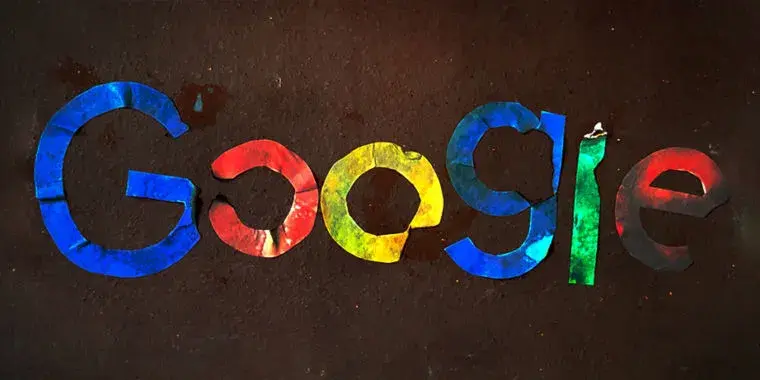And people keep asking why I prefer Firefox
This is just another reason to add to the pile
This is the thing about Chrome and the whole Chromium based ecosystem. Why on earth would anyone use a browser from an Ad company.
By the way. They are planning on putting it in Android apps too. So there one gets little choice. A non-starter like Apple where you cannot even load your own apps and app stores or Android from an Ad company where you can with effort at least choose your own software and even image your own OS.
@Gormadt They say Firefox is slow. Because in the past it used to, especially with the old engine and when Chrome was new, that’s true. But nowadays it does not matter anymore and the speed differences are negligible. If that is the only reason to not use Firefox, then people should reevaluate their decision.
Then there is the argument that people do not like Mozilla. But they like Google more? Even if you use a Chromium based browser by a different company, you give more power to Google this way, as the engine becomes a bigger part of the web. Am I crazy for thinking that?
I use Firefox since version 1 as my default. Occasionally I switched to a different browser, but always came back to good ol’ Firefox.
Personally it’s not that it’s slow, it just holds on to weird patterns for way too long, kinda like how new outlook just feels like old outlook with a new skin. Whenever I open edge, it loads. Whenever I open firefox, it’s the “Firefox is installing updates” window that’s probably been there since the 90s. Refusing to honor the ‘close multiple tabs’ etc. It’s minor stuff but when there’s an objectively better way to do things, it’s just annoying.
Well this is sort of a non issue, I can say I feel the same way when I have to open Chrome. Weird ui, doesn’t do what I want it to do, no middle click to open new tab, it’s so annoying because the firefox way is objectively better. So I’m saying the only objective thing about UI is giving people choice
I don’t think I’ve seen either of those in a decade? Maybe it’s because Firefox is my daily driver so it isn’t trying to install months worth of updates at a time.
Firefox has been slower to startup for a long time. Maybe a few seconds slower compared to Chrome. But it has always made up for it in it’s memory usage. The more tabs you open, the worse Chrome gets.
@NaoPb Firefox starts in 2 seconds total for me on my 10 years old CPU, even with many plugins installed. While there are constantly 6 or more tabs open, most are not loaded in when starting Firefox, unless I click the tab itself. And opening a new private window is almost instant. I even use Firefox for reading PDFs, instead installing a dedicated application, because it is fast loading and does the job. All in all, it’s probably not far away from Chrome in starting up Firefox. And it probably isn’t that important, because the browser is open all the time for me.
As for the memory usage, I always thought Firefox is being bad here. Can’t imagine Chrome being worse. Are people happy with that?
I remember Chrome starting nearly instantly. But that could be that it’s doing some preloading. I haven’t used Chrome in years though. 2 seconds for Firefox startup sounds about right yes.
As for memory, I wouldn’t say Firefox is great. But I often have a lot of tabs open at once while I am researching some things and Firefox is just rock solid for me. It has had some memory leaks in the past but they seem to be mostly gone now. You’d probably find browsers that use less memory but I dare to question if they would use less memory than Firefox in my usecase.
In an unrelated note I am curious which modern browser (in Linux) uses the fewest amount of memory.
@NaoPb Hi, I just wanted report that the startup of Firefox is almost instant. I have a new modern PC build with a modern and fast M2 SSD and took the exact same Firefox profile over. Now running Firefox starts basically instant. The tabs are not loaded in however, so obviously the webpages would start loading once clicking the tab. But Firefox itself is now instant operation for me.
You are probably right. My memories are of using Firefox on a PC with a mechanical hard drive. Back then Chrome seemed to have the upper hand. But these days Firefox loads instantly when you have an SSD. So yes, please ignore my earlier argument.
Nothing wrong with Firefox. The problem though is that too many people have been convinced that some how Google is better. I personally do not think that it is about details people argue about. It more about using what they know, what their friends know, or what their friends will think is cool. In the end you either care about having an open web and user focused browser or you do not. Most people do not it seems.
The challenge for Firefox is that if user base is too small, developers will no longer test their sites against it. The other issue is that it is not clear if Firefox can keep pace with Google. For example Firefox desktop does not support WPA, and mobile versions it is not complete. It will be interesting how things will evolve. Maybe Google will even take steps to actually keep Mozilla and Firefox around and viable just to keep the Monopoly busters away. Who knows.
For me I do care, and will use Firefox until it is not feasible to do so if that day comes. At the moment it is just fine. Who knows the future.
I’ve been using Firefox since just before the launch of 2.0, it’s never let me down except for a once after Google Play Music went away and I had to use YouTube Music.
For a little while after the switch Firefox wouldn’t play a few albums but Google Chrome would. But that was quickly fixed.
Firefox gang rise up!
How do they rise up, rise up, rise up, how do they rise up, rise up high?
GNU pTerry
Hope other browser developers realize chromium is a ticking time bomb. I’ve used firefox for over 15 years and see no reason to change with the current landscape of browsers being so reliant on google .
Seriously… I’ve never once strayed from Firefox since its release.
I’m forced to use chrome for work and it is crap.I guess that using safari on iOS devices is one exception, and it isn’t too bad.
I’ve been using Firefox since it was called Phoenix. Mozilla, for all it’s flaws, has been our first and only line of defense for an open web for so long.
Damn… I think I came on a bit later than that. I don’t recognize the icon of Phoenix so I doubt I made the switch that early on!
I think I started using it in the 1.x times. I remember all the flaws it’s had since. I’ve given lots of other browsers a try in the meantime but none come close to Firefox. They might be good enough for others but for power users Firefox is the way to go.
deleted by creator
I’ve used firefox for over 15 years and see no reason to change
Okay, but change to what then? All the other options are just Chrome, Safari, and Firefox again.
Ungoogle-Chromium, Brave, Vivaldi, Librewolf, anything that isn’t paid by Google. That they are still based on Chrome or Firefox doesn’t really matter, since they remove the undesirable parts of them.
In the case of Brave and Vivaldi, they add their own undesirable parts (Brave adds crypto bullshit and Vivaldi is closed-source, so $DEITY knows what they’re adding).
Librewolf is open and doesn’t contribute to the Chromium monoculture; so it’s the best option
they are still based on Chrome or Firefox doesn’t really matter, since they remove the undesirable parts of them.
Actually it does matter, since Google are killing off the ability for ad blockers to work with a new manifest specification in Chromium.
Lol, reading that “censorship” section alone tells you all you need to know about the author there.
Literally hammering 1984 quotes like they love to do (dude, if Mozilla has the same kind of power as the Party, I must be chilling under a rock somewhere). Even has one of their sections called “Cucking to Manifest V3”.
Back to the “censorship”:
They want to algorithmically decide which content is allowed to be posted, and which isn’t. This is especially relevant in the context of the fake pandemic, during which the whole world has been enslaved exactly thanks to the propagation of the “factual voices” over the so-called “disinformation”. The “disinformation” here includes mentioning the factual harm done by COVID vaccines or even proven alternative treatments for COVID itself. So, Mozilla supports a world where people are harmed without being able to defend themselves.
Yeah, sorry. No. People with this little regard for reality shouldn’t be taken seriously when presenting arguments.
This whole screed is aimed at a very particular brand of user that looooooves to pretend they’re all “facts”, when it’s just emotional outrage over perceived slights. Same ones who complained about DDG when they tried to deal with Russian propaganda links showing up too often.
It’s all very conspiratorial, as is expected, yet offers no real answers because conspiracies very rarely have any.
Also, have to lol at the SystemD shit showing up at the end there as well.
Lol, reading that “censorship” section alone tells you all you need to know about the author there.
The site is obviously a bit over the top, however that doesn’t change the fact that the (criminally overpaid) Mozilla CEO openly endorses censorship:
Your link doesn’t seem to support your statement. Do you mean the part that advocates “turn on by default” tools to amplify factual information over disinformation? Because “turn on by default” implies an off switch.
It’s not possible for search engines to make zero decisions about what to prioritize in results, anyway. How would you prefer they sort the absurd quantity of results? Especially now SEO listicles try to drown everything else out?
Seemingly my Google pixel phone has stopped connecting to the Internet with other browsers. So I’m stuck using Google Chrome on it. 😠
I have a pixel 5a and haven’t had that problem, currently using Fennec (firefox fork).
Ridiculous. Time to switch to Safari or Firefox, folks.
My advice would be the latter. That case you can always use the same browser, no matter what OS you decide to use in the future.
Fair, although I personally use Safari on macOS/iOS and Firefox on Windows/Linux. If you’re interested, it’s fairly easy to sync between them with https://addons.mozilla.org/en-GB/firefox/addon/icloud-bookmarks/.
Interesting. I did not know that.
Why Safari? Apple is just another greedy corporation.
Because Safari is chock fill of strong privacy features, just like Firefox. It’s a very good browser, if you’re using Apple devices, especially with the forthcoming OS updates.
Apple may be a greedy corporation, however, as they make their money selling you expensive hardware and a premium experience, they are not incentivised to monetise user data.
Google has the opposite incentive given they make money at all from Chrome or Android, other than advertising. Arguably they barely make any money at all, other than advising… so of course they’ll track you.
Looks like I’m finally switching to Firefox.
I reinstalled my pc and didn’t install chrome. Firefox is pretty decent.
I remember going from IE to Firefox when they came out with tabs way back. We probably shouldn’t have switched to chrome en masse in hindsight.
Nah, Firefox went through a buggy resource hungry slow period for sure. Chrome was miles better, I’m making the jump back. I kind of have been by default on Ubuntu, but I’ll probably switch on phone too.
I’ve been using it on my phone for a fair bit. I still run into issues from time to time where pages don’t render properly, but that could also have to do with the adblocking which is a major advantage of Firefox. I only use Chrome now if Firefox doesn’t work.
I used to use Brave for years, and tried Kiwi for a fair bit too, but both of them have their own issues. I’ve found that Firefox works well enough for me now and allows me to stick it to the man.
It’s a little ridiculous how people misunderstand this issue. This is literally to do away with the extremely privacy-invasive tracking that has been done using cookies and telemetry for years. You will be tracked less in Chrome than you did before, because the browser will hand off less information to sites you visit and there will be a degree of randomisation. This is to get rid of cookies soon, and to randomise the information a site gets when you visit instead of the whole deal.
It is, of course, more personalised than blocking all cookies and randomising telemetry, but if you were doing that, I expect you weren’t using Chrome to begin with. Using a Chrome browser with Topics is inherently more privacy-forward than using Chrome as it has been so far. Honestly, I hope that the deprecation of cookies will even help *Fox users down the lines as they become irrelevant to a large part of the web users.
If you want a solid explanation of what is actually happening with Topics, Security Now episode 935 explains the details. The transcript dives into Topics on page 9, explains the technicalities on page 12 and if you just want the conclusion, you can skip to the penultimate page and read the last few paragraphs in here: https://www.grc.com/sn/sn-935-notes.pdf (you can listen as well if you’d rather.)
Unlike Web Integrity Protection this is a reasonable step in the right direction. Can it break down the line? Sure. But then we’re back at where we were. Meanwhile, I’ll continue to use Firefox and Safari and hope that this will eventually help stop the cookie banner nightmare on those browsers as well (even if the cookies do nothing.)
People aren’t misunderstanding the issue. Third party cookie support is being dropped by all browsers. Chrome is also dropping them, but replacing them with topics. Sure, topics is less invasive than third party cookies, but it is still more invasive than the obvious user friendly approach of not having an invasive tracker built into your browser. No other major browser vendor is considering supporting topics. So they’re doing an objectively user unfriendly thing here. This is the shit that happens when the world’s largest internet advertising company also controls the browser.
I don’t disagree as such, and I won’t use Chrome, but objectively it is better than what we had in Chrome. While many of us refuse/block ads/tracking completely, many users will now have better privacy with ads that are not micro-targeted on their individual but more broadly targeted with a generalised interest area that varies per visit and adjusts over time to keep it relevant.
IF a user doesn’t disable ads completely, this seems a decent way to make the ads somewhat relevant to the user without the horrible tracking methods in use today. Objectively that’s a better state than seeing ads for something completely irrelevant to the user. Again, this is not relevant for most of us in here, and I sincerely hope most of us don’t use a Chrome-based browser to begin with, but for the average internet user, for whom this is designed, I’d argue it’s a net positive.
It’s because ANY COMMERCIAL TRACKING AT ALL is unacceptable!
Chrome is trying to have it’s cake and eat it too by removing 3rd party cookies and baking in another tracking methodology anyways.
The User Has Spoken and we DEMAND that there be NO TRACKING! The browser devs are complying with that demand in various ways to various degrees.
Firefox complies with this demand openly and honestly. Third party cookies are not a thing much anymore and the browser actively tries to punish companies who try to do it anyways; while also allowing us to turn to other plugin developers to further punish companies who try to aggressively invade our privacy.
Google Chrome, on the other hand, complies very maliciously because it’s made by one of those companies who are trying to track us anyways. It removes third party cookies on the one hand and on the other hand tries to introduce other tracking technologies and WebDRM while also trying to severely curtail browser plugins that we choose to install to assert our rights to privacy our way.
You can’t tell me that’s not an evil dick move on the part of Google and the Chrome team. Chrome needs to clean up it’s act and the development team of Chromium needs to forcefully eject it’s Google developers and find new ones to retake the internet.
Google developers cannot be trusted not to put the interests of Google first; it’s literally what they’re paid to do.
See my other post in this thread for more nuance, but you sound like you shouldn’t be using Chrome in the first place (and maybe you don’t?) I feel the same way personally about browsing and use software accordingly. It is, however, still an improvement for the average Chrome user who is not tech savvy and won’t be using ad-blocking anyway (brrr - imagine using the web like that).
Please. Stop defending Chrome. It needs to do way better than what it is doing currently; which is utterly disrespectful and malicious to all users.
It’s a shitty browser. Wouldn’t use it myself. That doesn’t mean that this isn’t an improvement on what was there before. The world isn’t black and white - and privacy conscious people stay away from Chrome.
Stop defending the indefensible.
Stop repeating the inane and misunderstood.
In addition, there seems to be a sentiment that there should be no targeted ads altogether. To be honest I’m not sure how this looks in practice. I think it’s pretty obvious that no targeted ads mean fewer sales and therefore less revenue. Google has margins that could be dug into, fine. However this revenue is also shared by the open web that’s funded by ads. It’s also shared by small businesses that advertise. Generally those two groups have less margin to spare. How does the open web look like in this kind of status quo? How about local economies where the actual businesses who advertise operate? Ads on the web aren’t some small thing that is kind of up in the air, separate from “the real economy” anymore. 🤔
Besides all of that, targeted ads help people find stuff. Web ads used to be terribly useless in the 2000s. Over time they actually got pretty useful for me. Over the years I’ve found many products that I had no clue about as well as promos via well targeted ads. I don’t enjoy ads, but some of the things I use and love came from them. I definitely don’t want to go back to the useless ad shit show landscape of the earlier internet.
An ad-free web is definitely a pipe dream. But a targeted ad-free web should be a simple option available to users. I’d guess that the majority of the public doesn’t care too much about being tracked, and may even appreciate having their relevant interests targeted so that they see an ad that is more interesting to them. The problem is that, for those of us who don’t want to be targeted, there is no simple way to disable that. Companies have baked their ad targeting directly into the functionality of their platforms so it’s incredibly difficult to avoid targeted ads if you still want to use the most popular sites. I think this is the reality that is unacceptable.
Every browser should have a simple toggle to enable targeted ads and it should be every site should respect this. I’m not super educated on Google’s Topics solution, but maybe the step away from cookies could theoretically support that kind of reality. I don’t think Google is going to lead the charge on that kind of change, but we certainly need to get away from cookies somehow.
It is only arguably better for Google Chrome because it is one of the worst browsers for tracking at the moment. Even Edge is probably better ironically. Personally I think it is a false decision and false logic. You can just get rid of the the tracking features like other browsers, no new feature needed. Google only has this option because frankly too many people have chosen go give google that power for whatever reason.
Frankly what the web needs is a micropayment system and this micropayment system should not go through Google or the Ad people. You do not see Google proposing this. Yes they had a beta program, but it was through them and you had to allow tracking to use it. So not a real solution.
Man, this sucks for anyone dumb enough to use Chrome.
Will ungoogled chromium be able to patch this out?
Beside this, I’m still a bit worried about the state of the internet. Currently, ad revenue is what keeps a lot of sites online/free to use. Within the current economic system, is it even feasible to have privacy online?
Who gives a fuck? It’s not our problem if it’s not feasible, they can find ways of making money without living in our asses. Or they can make a bit less money - they can buy less latte and guacamole etc
For Google, yes that’s true. Subscription model YouTube is working so that seems fine. But for other websites, such as news sites etc. I wonder if there is a feasible alternative because I don’t want those sites to go away.
Non-tracking ads exist and work fine…
Eventually the chromium base will be too hard to patch if Google has their way. Surfing on ungoogled chrome is keeping the user agent the same as chrome. This shows devs and companies that chrome dominates and therefore they should only code sites to support it. Only true way to protest these changes is to switch to a different browser. Firefox and its forks are the only privacy focused options.
You beauty! I want chrome to become a malware and exploit the idiots who refuse to use firefox. Let’s gooooooo
@yoz Most people aren’t idiots, they are uninformed. But they become an idiot ones you inform them… So most people are potential idiots. :D
Does anyone know if this affect Brave? I’m pretty sure it’s based off of Chrome
Brave essentially has done this all along.
Brave is based on chromium which probably wont have too much dystopian tracking stuff unlike proprietary chrome (and they remove it anyways). People should still switch to firefox though
They will add this to the long list of things they patch out. But at some point, maintaining these patches is going to be more work than they can handle.
🤖 I’m a bot that provides automatic summaries for articles:
Click here to see the summary
Unlike the glitzy front-page Google blog post that the redesign got, the big ad platform launch announcement is tucked away on the privacysandbox.com page.
The blog post says the ad platform is hitting “general availability” today, meaning it has rolled out to most Chrome users.
This has been a long time coming, with the APIs rolling out about a month ago and a million incremental steps in the beta and dev builds, but now the deed is finally done.
Users should see a pop-up when they start up Chrome soon, informing them that an “ad privacy” feature has been rolled out to them and enabled.
That’s actually what started this whole process: Apple dealt a giant blow to Google’s core revenue stream when it blocked third-party cookies in Safari in 2020.
Google says it will block third-party cookies in the second half of 2024—presumably after it makes sure the “Privacy Sandbox” will allow it to keep its profits up.
Saved 73% of original text.
deleted by creator
Why i recommend everyone use librewolf or firefox





















